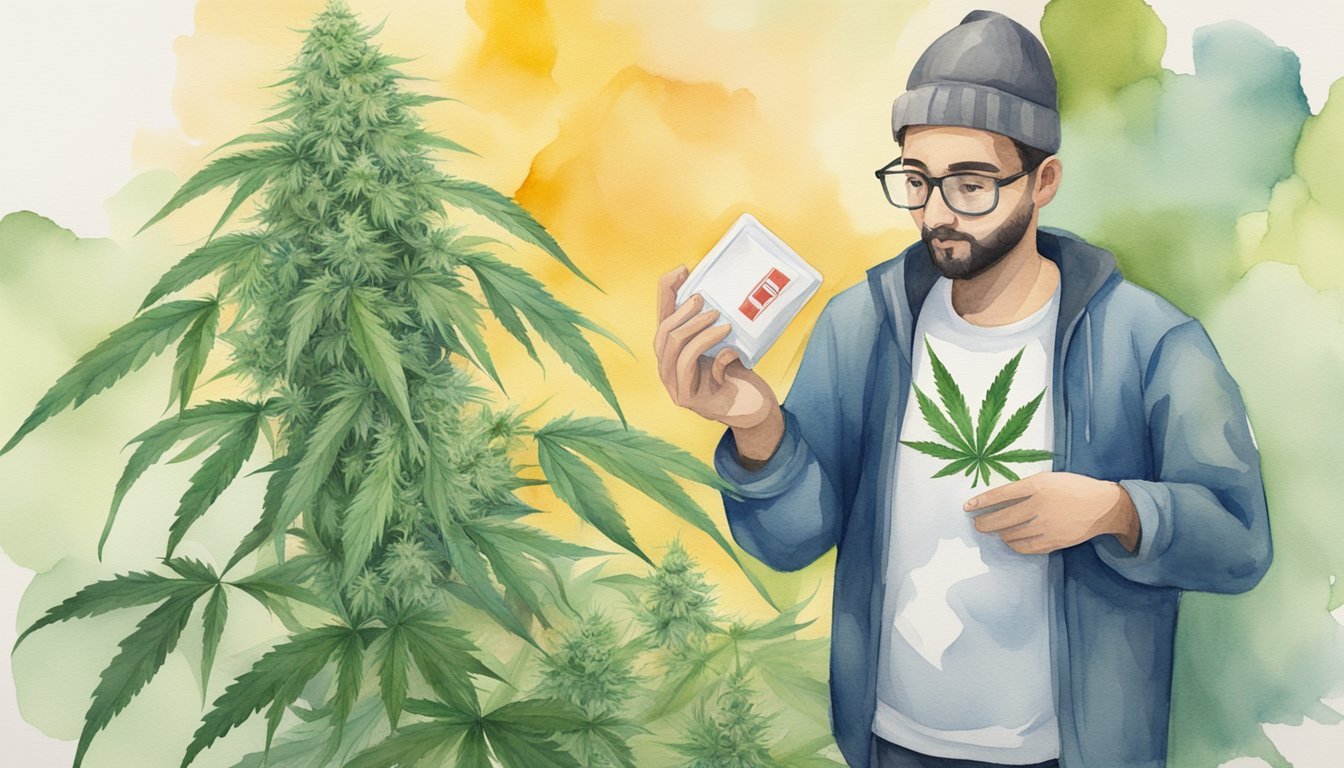Understanding Cannabis Overdose
Identifying an Overdose
Cannabis overdose, although rare, can occur when a person consumes more cannabis than their body can handle, leading to uncomfortable or potentially dangerous side effects. The main psychoactive ingredient in cannabis is tetrahydrocannabinol (THC), which is responsible for the “high” experienced when using the substance. While cannabis is generally considered safe, overdosing can happen when a person ingests too much THC, particularly through potent cannabis products like edibles, oils, or concentrates.
Effects on the Body and Mind
When a person ingests a large amount of THC, it can result in an overstimulation of the body’s endocannabinoid system. This overstimulation can cause a range of temporary effects on both the body and mind. Physically, a cannabis overdose can lead to an increased heart rate, chest pain, and changes in blood pressure. Dehydration and vomiting may also occur.
Mentally, a cannabis overdose can cause psychological reactions, such as anxiety, fear, panic, or depression. Severe cases may also involve hallucinations, confusion, and even temporary psychosis.
Overdose Symptoms
Some of the most common symptoms of a cannabis overdose might include:
- Extreme anxiety or panic attacks
- Intense paranoia or a loss of personal identity
- Hallucinations or delusions
- Dizziness or confusion
- Nausea or vomiting
- Increased heart rate or changes in blood pressure
- Chest pain or discomfort
Since cannabis overdoses can be temporary and usually do not result in death, emergency room visits are often focused on treating the symptoms of the overdose rather than cannabis toxicity itself.
While the risk of experiencing a cannabis overdose is relatively low compared to other substances, it is still important to understand what constitutes an overdose and how to prevent it. By monitoring one’s THC intake and being mindful of personal tolerance levels, users can minimize the risk of experiencing adverse effects from cannabis products.
Preventing and Responding to Overuse

Safe Usage Guidelines
When using cannabis products, it’s vital to follow safe usage guidelines to prevent a marijuana overdose. Begin by starting with a low dose and taking it slow, especially if using edibles, which can take up to two hours to take effect. Monitoring your tolerance is essential, as it can vary significantly from person to person. Additionally, always store cannabis products out of reach of children and pets to avoid accidental consumption.
When to Seek Medical Attention
It’s crucial to recognize the signs of cannabis overdose and seek timely medical attention. Some symptoms include extreme anxiety, panic attacks, and even psychotic reactions. Severe disorientation, hallucinations, and loss of personal identity can occur. Also, watch for increased heart rate, nausea, and vomiting, which may lead to a rare condition called cannabinoid hyperemesis syndrome.
If a child accidentally consumes a cannabis product, seek immediate medical attention. Their smaller size makes them more susceptible to adverse side effects.
Treatment and Recovery Options
While most cases of cannabis overdose are not lethal, it’s still essential to address the symptoms and prevent further complications. Treatment options may include monitoring vital signs, providing a calm environment for reducing anxiety, and administering medicine for nausea and vomiting. In extreme cases, antipsychotic medications might be necessary.
For those struggling with marijuana addiction, cognitive behavioral therapy could be beneficial in addressing underlying issues and enhancing problem-solving skills. Recovery from addiction might also involve peer support groups and behavioral interventions aimed at reducing substance use. Professional help from a healthcare provider or addiction specialist is always recommended to ensure a successful recovery journey.

